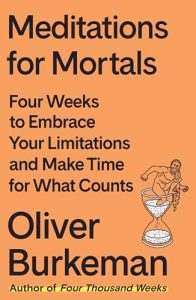
Maud Ventura’s My Husband, translated from French by Emma Ramadan, is one of those rare novels that manage to be both hilariously absurd and psychologically unnerving. Winner of France’s First Novel Prize in 2021, it invites readers inside the spiraling mind of a woman who has turned love into a full-time obsession. On the surface, she has everything: beauty, success, two children, and a seemingly perfect marriage. But behind the pristine suburban façade lies an unhinged symphony of overthinking, control, and delusion.
Our unnamed narrator is forty years old and has spent fifteen years married to the man she calls simply “my husband.” She loves him fiercely too fiercely. Every gesture, word, and look becomes a test of devotion. She records their conversations, secretly checks his phone and emails, and even grades his performance as a spouse in her notebook. When he fails to hold her hand long enough on the couch, she takes it as proof of fading love. Her life is a constant performance of affection, with every action meticulously rehearsed to seem effortless.
What makes this novel so fascinating is that it never settles on being one thing. It is, at once, a satire of domestic perfection, a feminist critique of emotional labor, and a psychological thriller told from inside a beautiful mind cracking under the weight of its own expectations. As reviewer s.penkevich describes, Ventura’s prose “spirals in on its own intensity,” drawing readers into a claustrophobic world where love becomes both prison and performance. The narrator’s inner monologue is so intense that it feels like reading the diary of someone teetering on the edge of sanity and loving every second of it.
Ventura captures the contradictions of modern womanhood with both wit and horror. The narrator’s obsessive routines assigning colors to days of the week, analyzing fruit metaphors, punishing her husband for imagined slights are darkly funny, yet deeply tragic. When her husband refers to her as a “clementine” during a party game, she fixates on it for pages, dissecting what it says about his perception of her. To her, being a clementine is an existential insult: small, ordinary, “a supermarket fruit.” It is absurd, yet heartbreakingly relatable for anyone who has ever overanalyzed love.
The translation by Emma Ramadan captures Ventura’s rhythm and irony perfectly. The language feels sharp and intimate, with a precision that makes every word count. Ventura’s background as a radio journalist and literature scholar shines through in her command of tone, balancing lyrical reflection with biting humor.
Some readers, like Rachel Hanes, found the novel tedious and repetitive, calling the narrator “nuttier than a fruitcake.” It is true that the story can feel suffocating, as we are locked entirely within the protagonist’s fevered thoughts. But that is precisely Ventura’s point. The suffocation mirrors the narrator’s self-imposed prison a life built on performing ideal love until there is no room left for authenticity or peace.
Other readers, like Lisa of Troy, embraced the absurdity and dark humor, laughing through the narrator’s “rules” and secret punishments. Ventura’s cleverest trick is making readers swing between amusement and discomfort, forcing us to question our own expectations of romantic devotion and control.
At its heart, My Husband is a study in self-destruction born from perfectionism. It asks how far one can go in loving another before losing oneself entirely. The final pages deliver a sharp twist that reframes the entire story, leaving readers unsettled and impressed in equal measure.
Equal parts Gone Girl and Fates and Furies, My Husband is a fever dream of obsession, power, and illusion. It is unsettling, brilliant, and wickedly funny a literary mirror that shows how the pursuit of perfect love can consume everything in its path.
👉 Get your copy of My Husband by Maud Ventura here: Buy on Amazon


